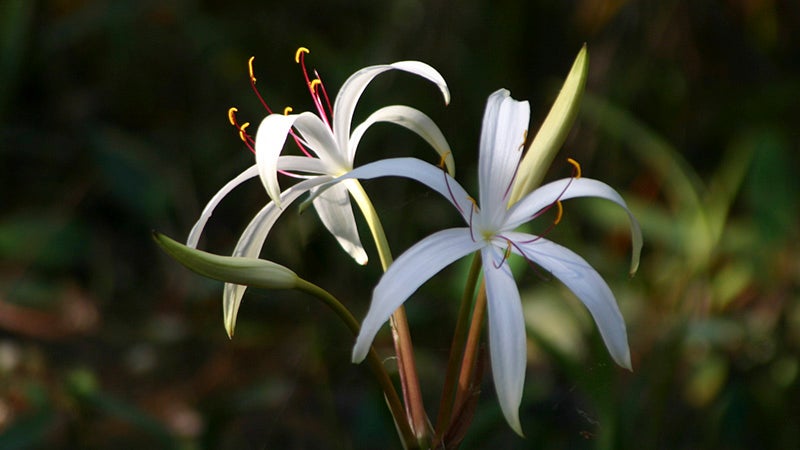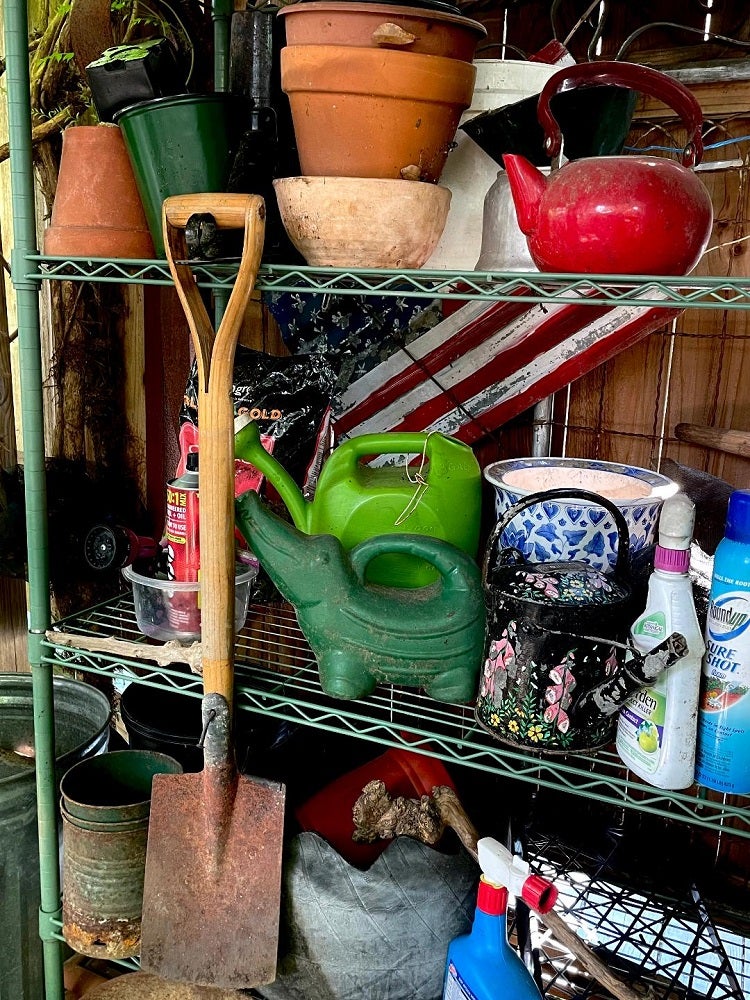How to create a low-care landscape
Published 7:00 am Wednesday, October 4, 2017

- Crinum Americanum Native American Crinum Lily 10-29-10 by Pat Drackettnet
When you spend time in your yard, are you resting, or laboring? Saturday’s program at the Crosby Arboretum will reveal how you can create a low-care landscape that requires less energy to maintain so you have more time for fun activities!
The foundation for creating a low-maintenance landscape is to first learn everything you can about your property. Where are the sunny or shady areas? If you have trees with shady canopies, how does the sun shift in these areas throughout the day?
By understanding the drainage patterns on your site – the slopes, where water tends to collect, and how your existing soil contributes to the ability of rainwater to percolate into the ground, you will then be able to choose appropriate plants that will flourish.
There are plants for every possible environmental condition that exists on your property. The key to understand your site’s unique conditions, so you can determine whether the plants you may wish to purchase as an “impulse buy” are truly going to be happy living in your yard. If not, you will be able to make wise choices for other plants best suited to your landscape, and save you needing to purchase plants again and again, and trying to get it right!
The Crosby Arboretum is an excellent example of a site that has had native species fitted to the conditions they prefer, as well as an example of “hands-off” landscaping. Here, the land is being allowed to grow and change according to natural ecological processes.
Our 64 acre public garden consists of approximately 40 acres of woodlands and 20 acres of grasslands. Our meadows are called “savannas”, and our site is known as a wet pine savanna, or a “pine flatwoods”. Here, we have many plant species in our exhibits that are well-suited to wet sites.
Perhaps you have an area of your yard where your lawnmower is always sinking. Why not create a natural area with plants that will perform well in wet conditions such as blue flag and Louisiana iris, pond and bald cypress, Virginia willow, buttonbush, sweetbay magnolia, black gum, buckwheat tree, Stokes aster, American crinum lily, Texas star hibiscus, and more.
The typical plants seen in garden centers tend to perform best in well-drained soils. But many of us have problem areas where rainwater collects and plants installed in those areas will not thrive. Typical failures include planting azaleas and camellias in areas that have standing water.
Make it your goal to work with the processes of nature, and reduce your maintenance needs by simple practices such as giving plants room to grow to their mature size, reducing their pruning needs.
Consider converting lawn areas into landscape beds so you will have less lawn to mow, fertilize, and care for. Why not start a compost pile with yard waste such as lawn clippings and leaves? Add this organic matter to your garden beds to fertilize and improve the condition of your soil. Consider using natural mulch such as pine straw which will require less energy to install and to break down than a hardwood mulch.
Many native plants have attractive blooms, such as Southern magnolia, mayhaw, Southern crabapple, parsley hawthorn, red maple, Grancy graybeard, and native hollies. To learn more, attend the Crosby Arboretum’s native fall native plant sale.
Pearl River County Master Gardeners and other experts will be on hand to provide information on the species best suited to your landscape, on October 21 and 22, from 10 AM until 3 PM
On your next Arboretum visit, enjoy the current gallery exhibit by Poplarville artist and writer Erlene Smith, whose work will be on display through the end of November.
Learn how to design low-care landscapes on Saturday, October 7, 10:00 to Noon and save money, reduce labor and energy needs, and meet some drought-tolerant, attractive native plant species to reduce your maintenance needs with Pearl River County Extension Agent Dr. Eddie Smith and Arboretum Director Pat Drackett. Cost for non-members is $7.
That afternoon, relax from 1:00 to 2:30 PM in a yoga program on Pinecote Pavilion with certified yoga instructor, James Sones. Members free, $5 non-members.
Reservations are requested for both programs, as space is limited.
Call 601-799-2311 to sign up for programs. The Arboretum is located in Picayune, I-59 Exit 4, at 370 Ridge Road and is open Wednesday through Sunday from 9 AM to 5 PM. See www.crosbyarboretum.msstate for more information.



